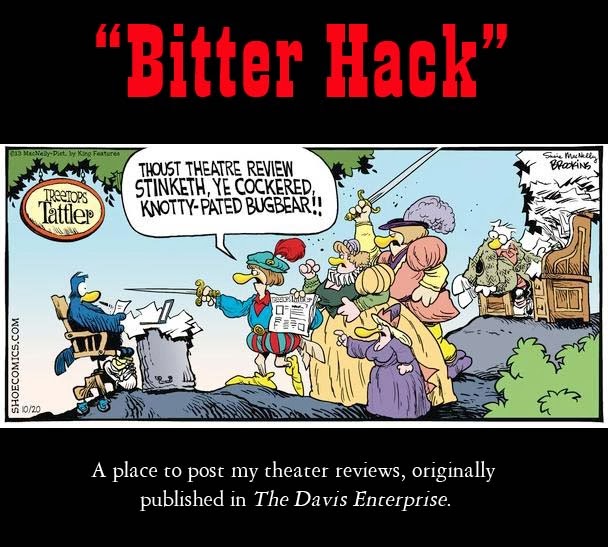The beauty shop in a small town is the perfect place for good friends to relax and spend an hour, or a day, or a lifetime. Truvy’s Beauty Shop in Chinquapin, Louisiana, is just such a place.
Truvy’s is the setting for Robert Harling’s “Steel Magnolias,” now gracing the stage of the Woodland Opera House, under the direction of Jason Hammond. The story, based on the life and death of Harling’s real-life sister who died in 1985 from early diabetes, opened off-Broadway in 1987 and closed in 1990, after 1,126 performances.
The all-star movie, with Dolly Parton as Truvy and Julia Roberts as the dying Shelby was a hit when released in 1989. The play then reopened on Broadway in 2005 for a short run, closing after only 136 performances.
It continues today as a popular play for community theaters, and its success depends greatly on the talent of the six women who populate the salon, all good friends who have seen each other through good times and bad times over the years, women who are “as delicate as magnolias but as tough as steel.”
The strength of the show is in the camaraderie of the women, and according to Deborah Hammond (Truvy), the cast came together much as the women they are playing. “The rehearsal process seemed less like work and more like having the opportunity to laugh and visit with good friends each night.”
The chemistry of this cast and their enjoyment of each other came through loud and clear to the audience throughout the play.
Hammond was outstanding as Truvy, big and bold with an open heart and an ear for all the town gossip. Hammond not only brought Truvy to life, with a spark that resonated with the audience, but she was impressive in her hair styling skills as well!
Patricia Glass is Annelle, a new employee at Truvy’s, who is hiding her own secrets and who is very timid at first, but gains self-confidence and eventually fits right in with everyone else.
Danielle Barnett is glowing as Shelby, who comes in on her wedding day to have the finishing touches put on her hair. The show really revolves around Shelby over two years — her wedding, her fragile health, her desire to have a baby, and the sad consequences of that decision, though she hides her condition so well it’s very difficult to believe she is sick.
Shelby’s mother M’Lynn is played by Emily Delk, who has a complicated yet loving relationship with her daughter. M’Lynn has the least to do for the first three scenes, but her raw emotional breakdown in scene four breaks your heart. She’s really the only one of the women who shows extreme emotion and she does it beautifully.
Lenore Sebastian is Clairee, former first lady of Chinquapin. She has a quick wit and a way of diffusing tension with humor. She has a love-hate relationship with the town curmudgeon, Ouiser.
Nancy Agee’s Ouiser, is loud, brash and inappropriate. She apparently dislikes everybody and says things like “The only reason people are nice to me is that I have more money than God.” Yet she is believable in those few instances when she lets her humanity show through the wall she has built around her.
The cast has the advantage of a beautiful set on which to work. Jason Hammond and John Bowles have created a beauty parlor so realistic that the only thing missing was the smell of hair spray and other chemicals. There was, however, one problem with the set, depending on where you sat. Our seats were in the fourth row, on the right, and the couches in the lounge area completely obliterated our view of the second hair-cutting seat. Since M’Lynn spent a good deal of the first scene in that chair, having her hair set, I rarely got a view of her.
This is a story of long-lasting friendship and the close bond among women who have been through so much together. In the right hands, this is a beautiful story that will resonate with anyone who has needed the support of her friends in joy and in sorrow. Fortunately, the Woodland Opera House has the right hands.




